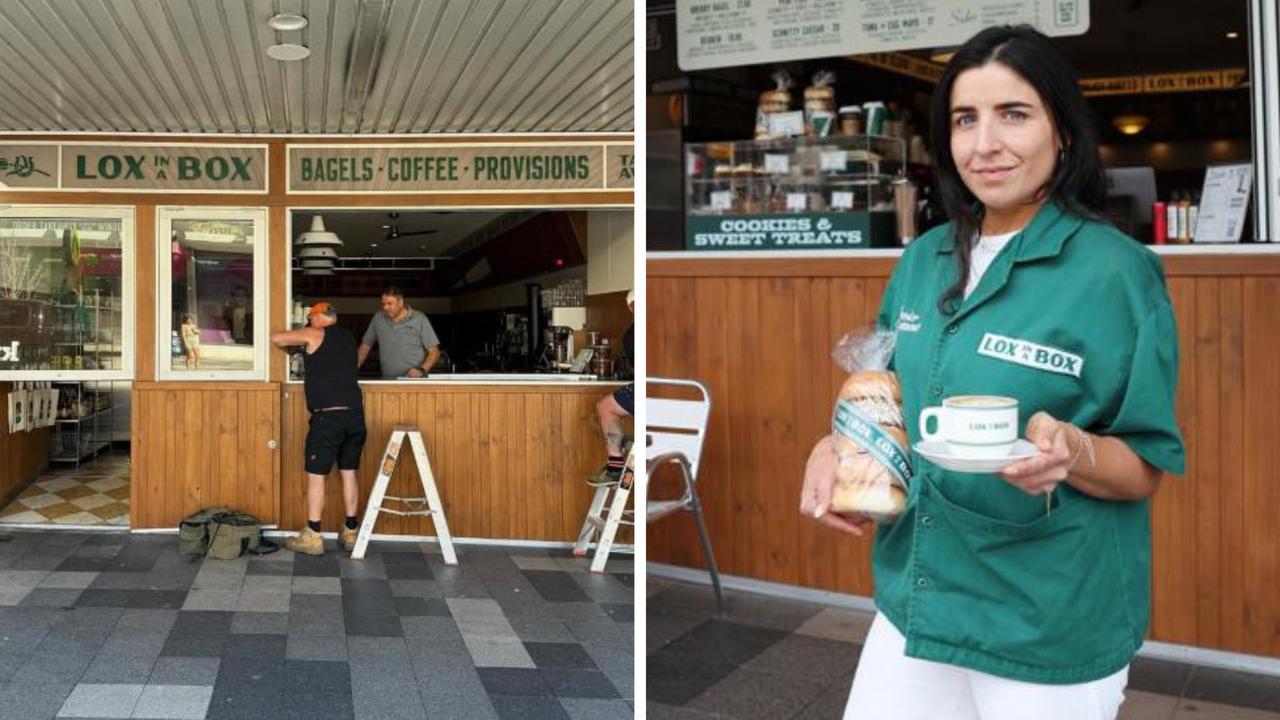By Natalie Brown
Copyright news

Coogee’s Lox in a Box had been open just two months last year when it was reported to Randwick Council for having the wrong windows.
Owner Candy Berger was told that the venue’s canteen-style windows presented a “safety risk” and intruded into “public space”.
Following months of consultation with council, on Monday the cafe closed in order to replace them with bifolds – “or risk being shut down permanently” – to the tune of $8000, on top of which Ms Berger paid a staggering $15,000 on a certifier and development application to become compliant.
“We thought that we were doing something good for the street – we upgraded the building from what it looked like before to what it looks like now,” Ms Berger told The Daily Telegraph, noting the initial cost of renovating and opening the cafe was upward of $400,000.
“(But) somebody from the community had essentially told them that we had done work to the building that wasn’t DA-approved.
“The whole street has these massive blade signs, which are all attached to really old awnings, which could in theory drop at any point in time. How come those are allowed (but our original windows were not)?”
Though the cafe reopened as normal on Tuesday, Lox in a Box operations manager Josefina Parra said that having to close for what felt like “unnecessary” renovations had been “really tough on our small business”.
‘More than just paperwork headaches’
In a statement shared with news.com.au, Business NSW CEO Daniel Hunter said that “red tape is bleeding businesses dry, blocking productivity, and holding back growth”.
Research by the state’s peak business body, released this week, found nearly 1 in 5 small businesses had been forced to halt expansion plans due to regulatory demands, stifling business growth across NSW.
Seventy-two per cent of businesses rated these demands as “high” – a 53 per cent increase since August 2023. Owners who considered regulations to be “excessive” rose from 11 to 19 per cent in that same 19-month period. Just 21 per cent felt the balance was right, down from 33 per cent.
“Unless urgent action is taken, it will continue to hinder business potential and strain the economy,” Mr Hunter warned.
“These rising regulatory costs are more than just paperwork headaches. They pose major obstacles to business efficiency and innovation, quietly sapping energy and diverting focus from core activities.”
More than 3 in 5 (63 per cent) of businesses who had dealt with the NSW planning system in the last five years, meanwhile, reported having a negative experience, compared to six per cent who recalled having had the opposite.
‘Small businesses risk going under’
Manly’s beloved Rollers Bakehouse made headlines last month when Northern Beaches Council voted to remove the stools, small tables and benches the cafe had provided its customers, in outside Rialto Lane, since it opened in 2018.
Owner James Sideris said the council decision presented yet another hurdle businesses like his are being forced to overcome, in an already-difficult climate.
According to a recent Productivity Commission report, businesses spend up to $38,360 – across plans of management, owner consent, environmental impact statements and hiring a planning consultant – to get off the ground. Planning decisions “often focus narrowly on managing potential risks”, an approach that can “discourage investment (and) constrain trading opportunities”, Productivity Commissioner Peter Achterstraat AM said.
“It’s hard enough … at the moment, with rising costs and regulations, and this is just another thing that makes it harder when all we’re trying to do is create a good culture and a space for people to sit down,” Mr Sideris told The Sydney Morning Herald.
At a council meeting on Tuesday night, that vote was upheld, Rollers shared in an Instagram post, “officially ending our outdoor seating”.
“After 7 years without a single incident and more than 4,000 signatures in support, it’s heartbreaking to see this chapter close just as Summer begins,” it said.
“A huge thank you to everyone who has stood by Rollers. Sadly, this decision feels like a reflection of where our council’s priorities lie.”
Kieran Birchall, who owns MyFlowerMan – a florist, cafe and bar on Bondi’s Fletcher Street – and has submitted an application to Waverley Council for a “small footpath seating area”, made a similar point.
Though “optimistic” his proposal “will move forward in a positive way” (albeit at a slow pace), Mr Birchall told news.com.au that “without initiatives like this, small businesses like ours risk going under”.
“For the community, it means less activation of the streetscape and fewer shared spaces to enjoy and (results in) a boring Bondi,” he added.
“This neighbourhood in particular thrives when there’s a sense of connection – everyone knows everyone. You see it at the beach, in the parks, in restaurants and pubs. And we are just trying to contribute to that same energy in our little corner of Fletcher Street.”
Business NSW has called on the state government to reduce the burden on businesses by establishing a permanent online “red tape reporting” portal where they can flag regulatory issues – supported by twice-yearly governmental meetings to address key concerns – and cutting back DA fees and associated costs.
“These measures will build a more transparent and responsive regulatory environment,” Mr Hunter said.
“It’s about cutting unnecessary costs and complexity so businesses can focus on what matters most – serving customers and supporting the local economy.”



